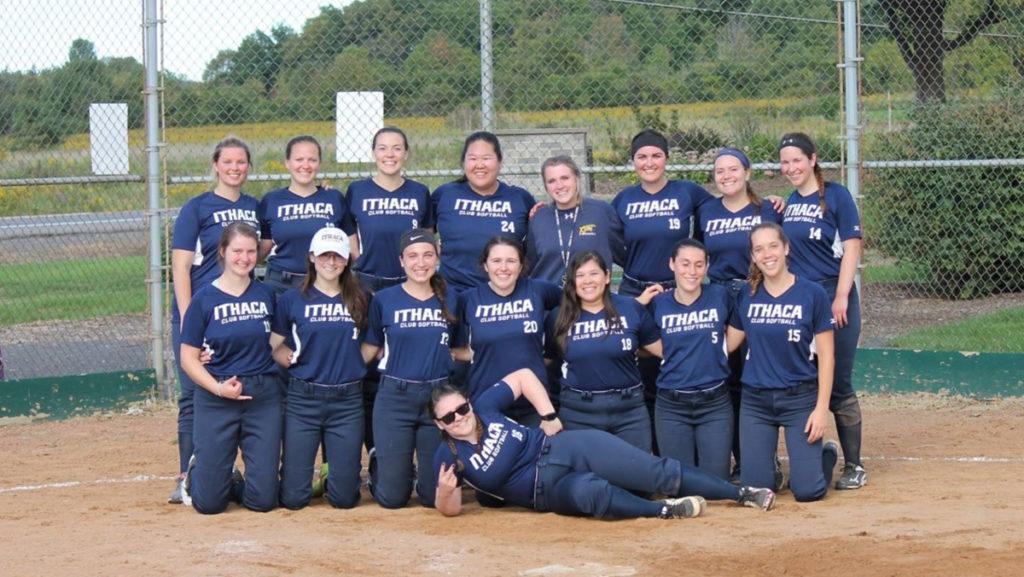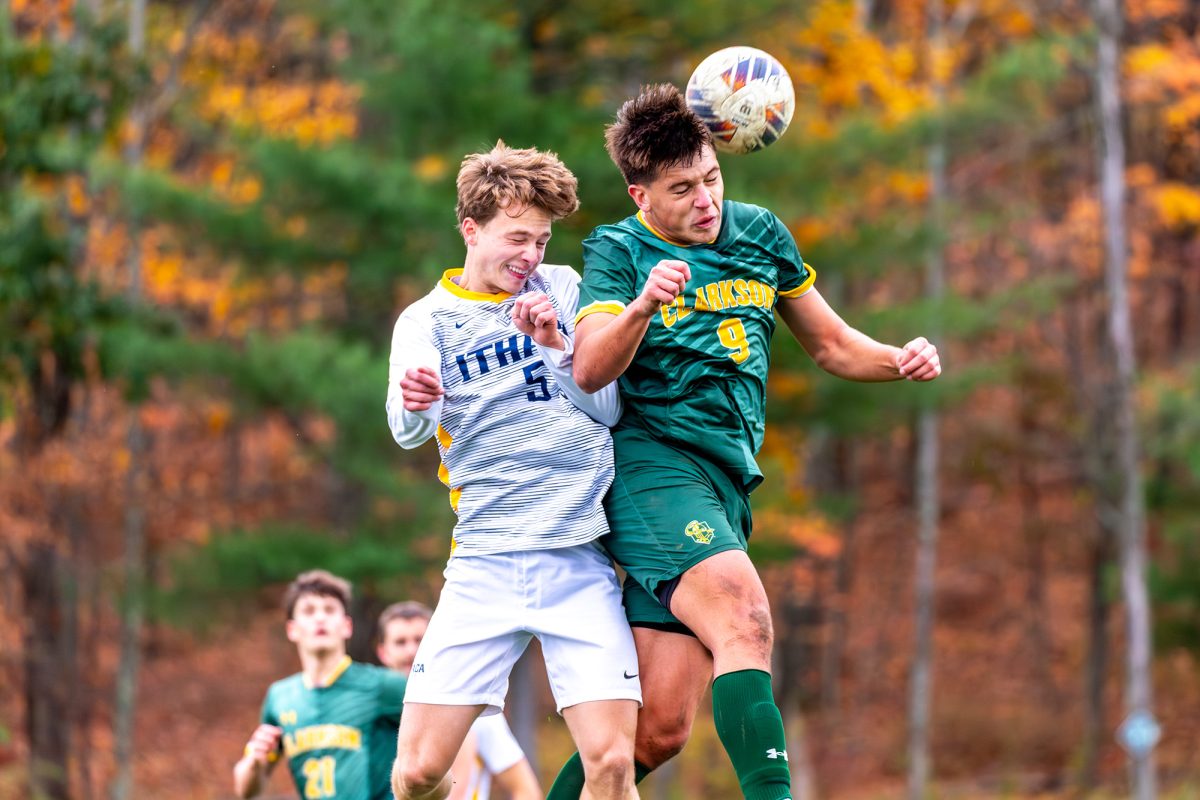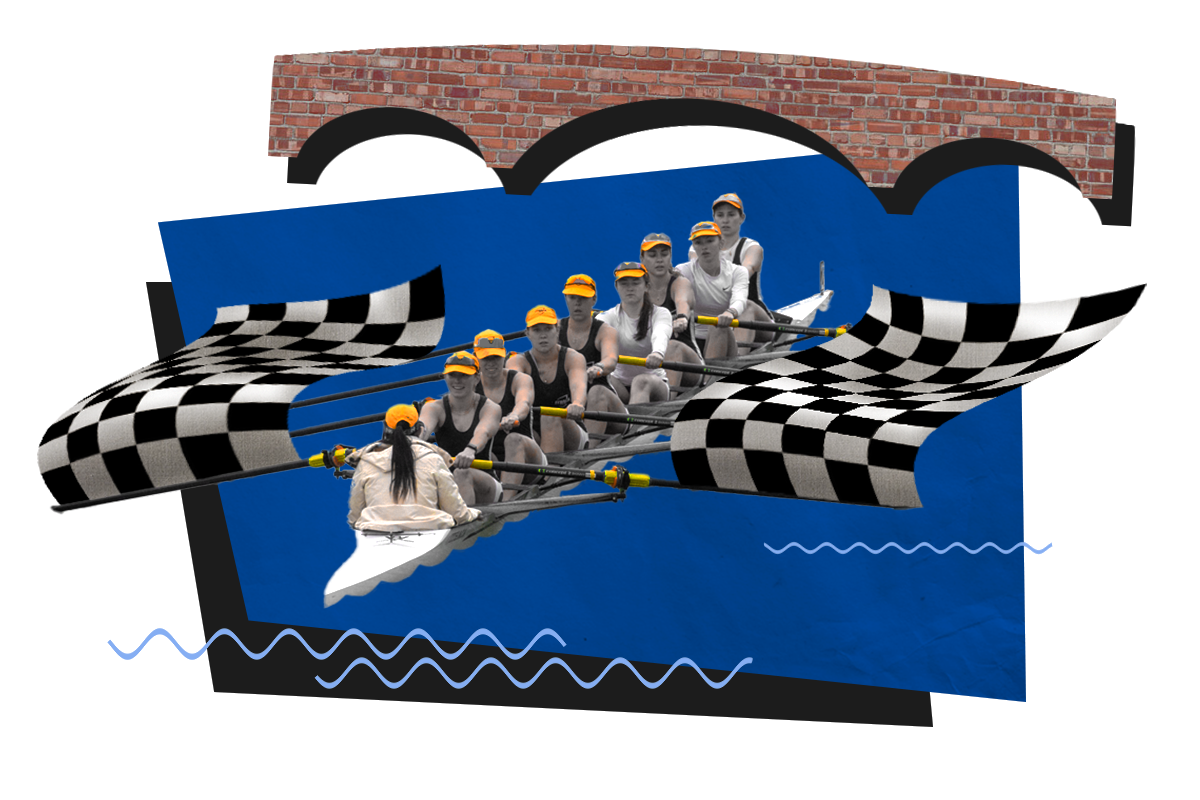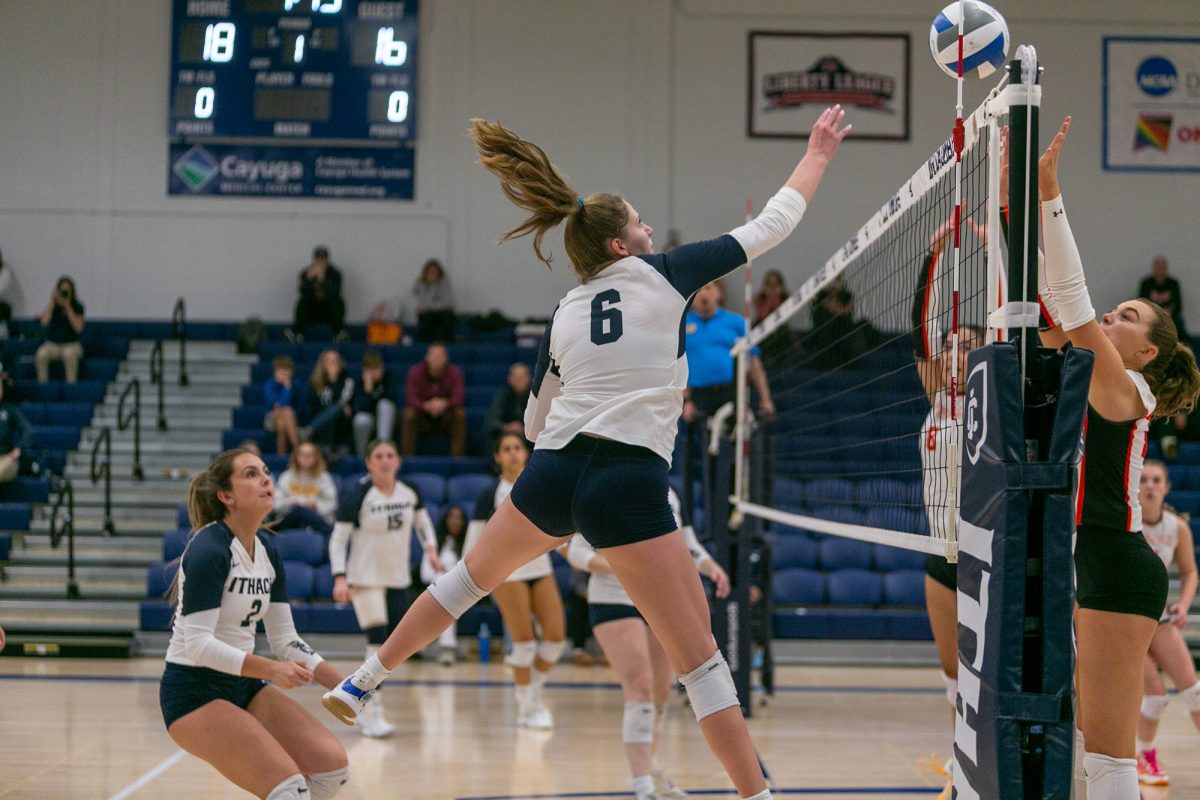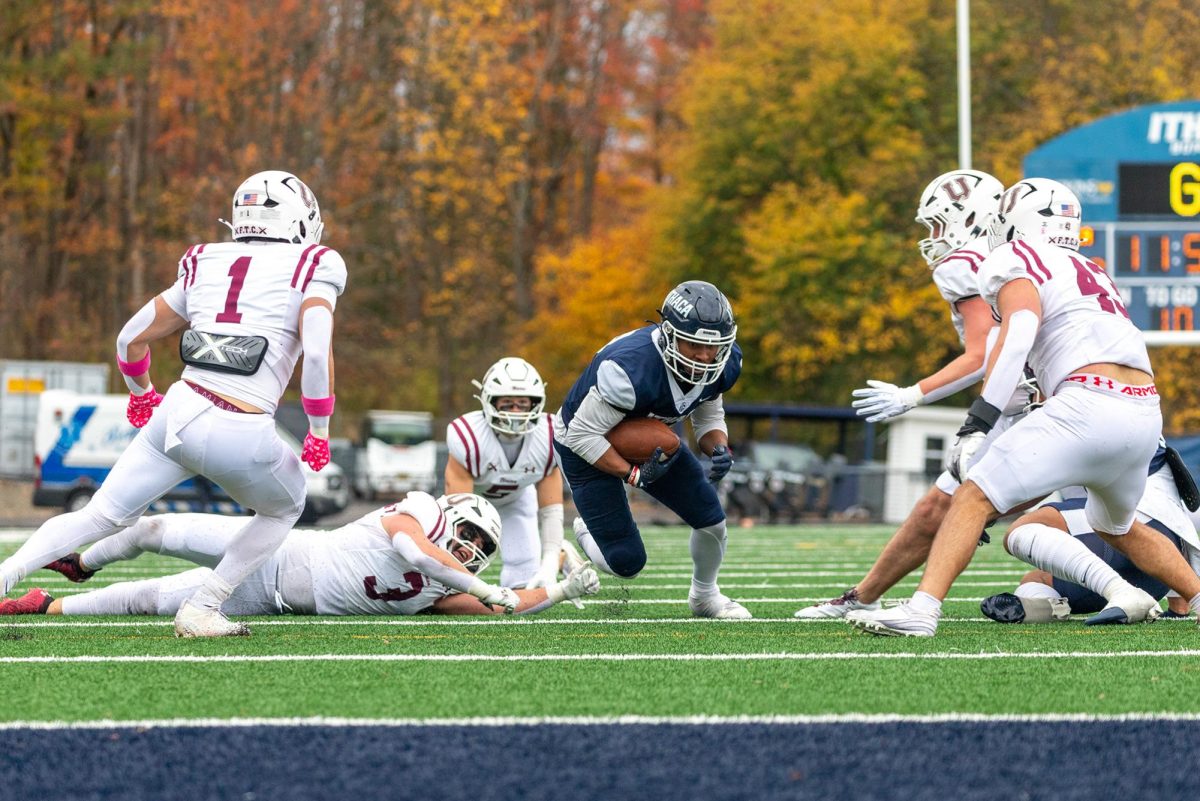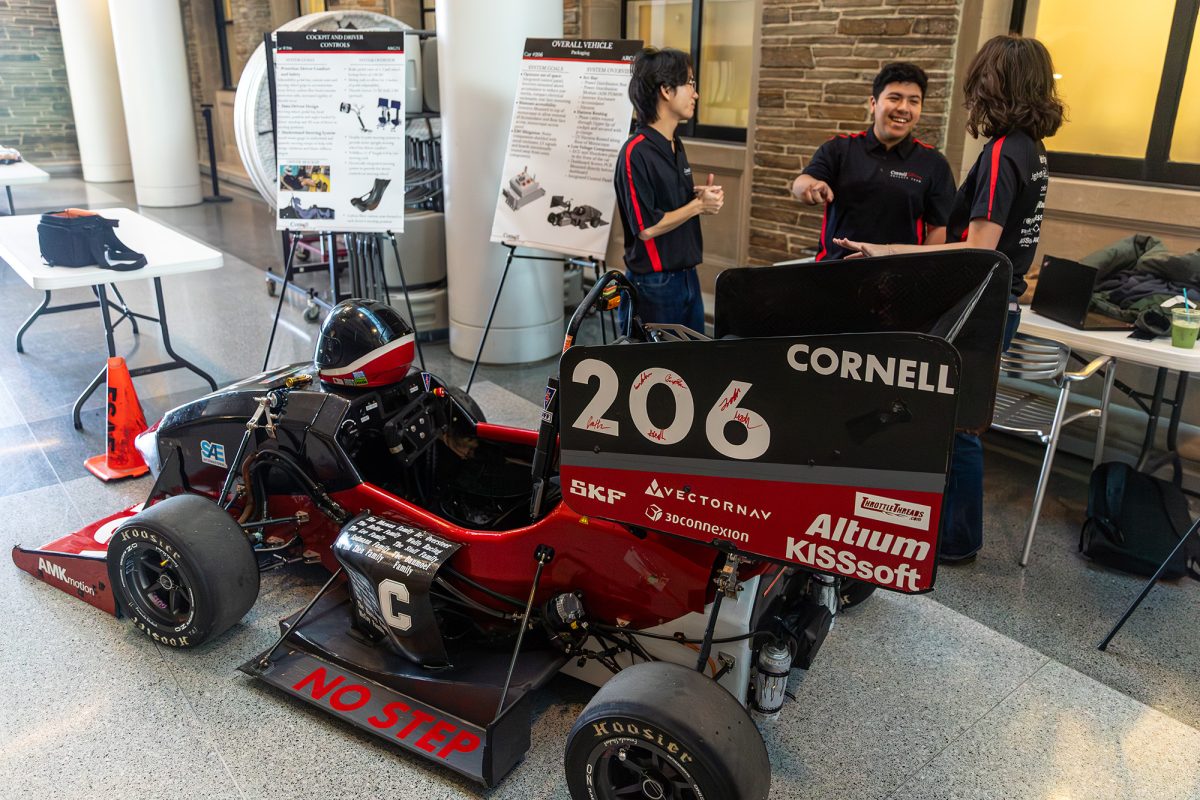Despite Ithaca College varsity spring sports being cleared to compete in the Liberty League conference this season, club sports teams will be allowed to practice and train on campus during the spring semester but will not be allowed to compete. Some club sports teams have concerns about funding and safety heading into the semester.
Susan Bassett, associate vice president and director of the Office of Intercollegiate Athletics, said the Office of Recreational Sports has developed a return–to–sport plan for club sports and intramural teams. Each team will be required to designate a safety officer, submit a safety plan and follow protocols like social distancing, enforcing mask–wearing and de-densifying facilities.
“Club sports do not have the same level of supervision to move forward safely at this time,” Bassett said via email. “Hopefully, as we continue to make progress managing COVID-19 we will be able to continue to expand club sport engagement. Right now, we are phasing in club sport activity as the clubs prepare and present their safety plans to Sean Reilley [associate director of the Office of Recreational Sports]. We are gradually doing more and more.”
Currently, there are 27 competitive and semicompetitive club teams and 13 performance and recreational club teams at the college. Competitive teams consist of more traditional sports, like ice hockey, rugby and basketball, and teams that attend competitions during the academic year, including cheerleading, equestrian and ski teams. Performance and recreational clubs include different dance forms and nontraditional sports clubs, like Ithaca Outing Club, Circus and K-Pop Dance.
Sophomore Sarah Cashton, club equestrian team secretary, said the club is planning to continue riding lessons similar to years prior but is currently unable to practice under club sports. She said the team has put safety protocols into place, like reducing the number of students in a car for carpooling and implementing contact tracing for both the college and the farm. Team members also wear masks unless they are mounted, as horseback riding is a naturally socially distanced sport.
Senior Megan Szuchman, captain of the women’s club softball team, said the softball team usually practices off campus at a field in Lansing, which costs $300 per practice session.
“We have to carpool to get to practice, and with COVID instructions, we can’t really be sticking six girls together,” Szuchman said. “I think we’re going to have to just kind of practice on the grass fields. … Those are obviously free to us, even though we would rather practice on an actual softball field, but just between the money and the COVID stuff, we really don’t know if it’s really possible.”
Funding for club sports teams is awarded on an as-needed basis, typically ranging between $500to $10,000 per club, Reilley said.
While the budget for club sports has not yet been finalized, Reilley said he expects the budget to be significantly less than previous years.
In the 2018–19 academic year, club sports were allocated a total of $91,100, and in the 2019–20 academic year, clubs were allocated $90,625, Reilley said. He said that so far in 2020–21, $1,500 has been allocated to the Esports Club to fund its membership in the Eastern College Athletic Conference (ECAC).
Senior Dina Barossi, club sports assistant, club athlete senator on the Student Governance Council and treasurer for the club women’s lacrosse team, said the funding gets allocated to the competitive teams first and then noncompetitive teams have to request the remaining amount from the Club Sports Council (CSC). She said the CSC is made up of representatives from each team who decide how much funding the team receives.
Cashton said the equestrian team was allocated $8,000 from CSC for the 2019–20 academic year. However, because they are not permitted to compete and the allocations are usually used for competition fees, they did not receive funding this year.
Reilley said the funding is used for travel, professional services like instruction and officiating, facility rentals and league dues. The funding that teams receive cannot be used for food or personal expenses. On top of that funding, teams are also required to fundraise 40–60% of the amount they allocated, Reilley said.
Szuchman said the team usually has 25 players and is self-coached, partially because of budget reasons. She said that when she joined the team her freshman year, the team did not hold any fundraisers, which has led to ongoing budgeting issues. She said the dues for the team are $50 per semester and the team makes around $1,000 from fundraisers each year, but the process for fundraising is difficult.
“It’s tough because with a lot of these fundraisers, you have to make a certain amount of money to get any money back, really,” Szuchman said. “If we don’t make the fundraising money back, then we not only lose that money, but then it subtracts from the amount of money that we get for the season after that.”
Barossi said that in a typical year, teams could ask the CSC for money to rent field space off campus and pay for transportation and gas to commute. She said that probably would not be an option this year, given the decreased budget, and teams will have to fundraise more while also following COVID-19 guidelines.
“If we don’t do that specific travel because we don’t have the money from the school, or we don’t have the money from fundraising or from upping our dues, then we’re in jeopardy of losing our spot in the [New England Women’s Lacrosse] League, which would end us as a club,” Barossi said.
Szuchman said she is concerned that the softball team will be in trouble because it missed fundraising in the fall.
“It’s even tough right now to complain about money when the school is laying off so many people,” Szuchman said. “They don’t even have money to pay their own employees, let alone the kids who are trying to do extracurriculars.”
Reilley said he understood the importance of funding but would prioritize safety as a higher concern.
“Additional requests for funding will be reviewed on a case–by–case basis throughout the semester,” Reilly said. “With our phased return to activity and the COVID safety precautions we’ll be observing this semester, funding will not be the limiting factor for club activities.”


